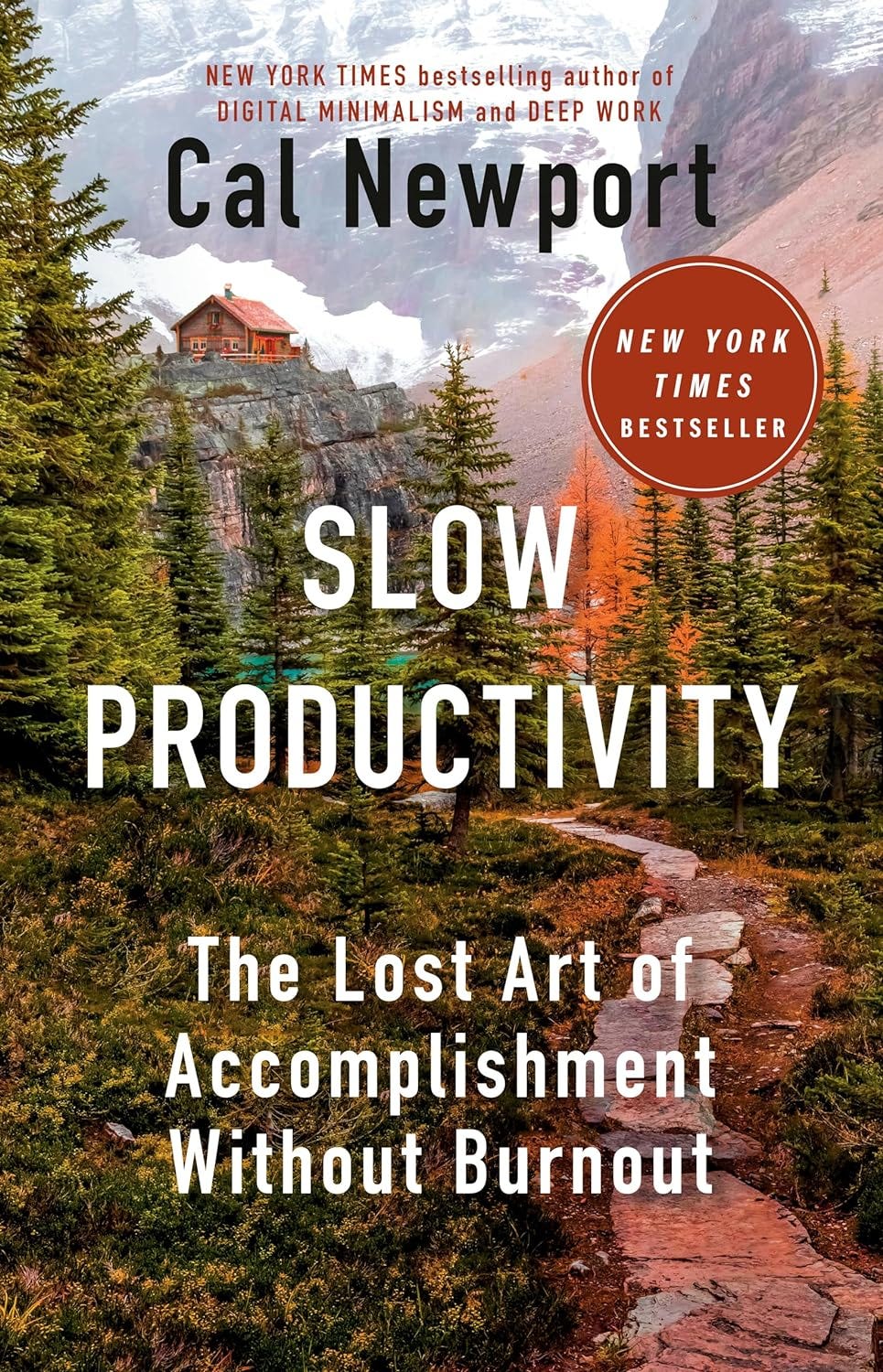Slow Productivity: The Lost Art of Accomplishment Without Burnout
Monthly Book Review
The most common type of workday for me is to spend hours in meetings, answering emails, responding to Teams messages or Slack messages, constantly bouncing from one thing to the next, and squeezing work into the crevices of time (forget about meals). And then wondering at the end of the day how I could be so busy but not get anything done.
I know I’m not alone. In fact, this is probably a common type of day for most knowledge workers. Because we’ve replaced productivity for busyness. We are always busy, but getting nothing done.
This is one of the core problems that Cal Newport addresses in his new book, Slow Productivity: The Lost Art of Accomplishment Without Burnout.
You’ll likely recognize Cal Newport as the author of one of my favorite books, Deep Work, which addresses a similar problem about how we can work more deeply and focus more intently.
This book tackles the idea of modern productivity and how broken our conception of it is. It looks at how we got here and what steps we can take to walk back from the brink and reclaim some sanity.
So let’s look at a few key ideas.
Overview
Pseudo-productivity has become a proxy for actual work. It is easy to measure and easier to see. Meetings, emails, and messages are very visible and very present. But they don’t actually accomplish the meaningful work that most of us want to do. They’ve taken over our lives but accomplish nothing. Unfortunately, our workplaces (and our own guilt) drive us toward more and more of this type of pseudo-productivity.
It wasn’t always like this. In fact, many of the best artists and thinkers used to, and still do, work more slowly and deliberately. Jane Austen took long stretches of time where she was solely focused on writing, and produced some of the best and most influential literature. Isaac Newton took years to formulate his ideas, with some of his most productive time being the years he spent in the countryside away from other work.
Most talented artists and thinkers have had to slow down to do their best work. We do as well. But how can we? Is it possible, or is that a thing of that past? Slow Productivity explores some ideas on how we can slow down in our own work.
“This philosophy rejects busyness, seeing overload as an obstacle to producing results that matter, not a badge of pride.”
Key Takeaways
The book is organized into three key principles, so we’ll touch on each one briefly. Of course, you’ll want to check it out for more (and I highly recommend you do).




